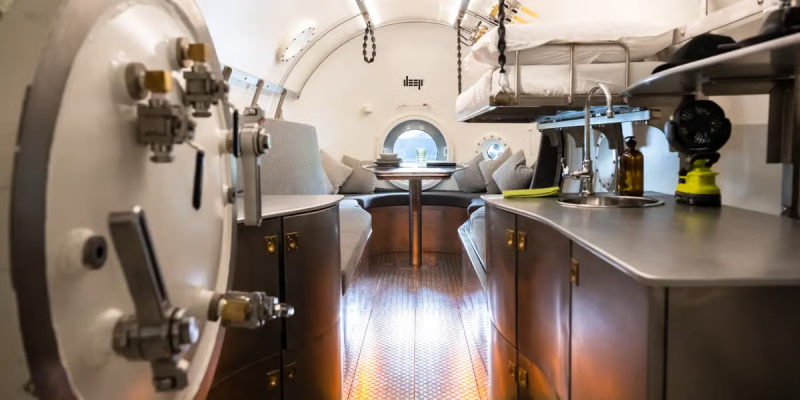- Bangladesh Bank Buys $115 Million to Support Forex Market |
- Tarique Rahman, Daughter Zaima Added to Voter List |
- NCP and LDP Join Jamaat-Led Eight-Party Alliance |
- Tarique Rahman’s gratitude to people for welcoming him on his return |
- Attorney General Md Asaduzzaman resigns to contest election |
Vanguard: Underwater Habitat Lets Scientists Stay a Week

Vanguard: Underwater Habitat Lets Scientists Stay a Week
A UK-based company, DEEP, has unveiled Vanguard, a “subsea human habitat” designed to allow scientists to stay underwater for extended research missions lasting up to a week.
The prototype was revealed Wednesday in a hangar in Miami, Florida, with the goal of enabling oceanographers and other researchers to explore the depths of the ocean beyond the few hours most dives currently allow.
“There are zones in oceans around the world that are unexplored at those depths, and making them accessible to divers will open up a whole new realm of science,” said Norman Smith, DEEP’s Chief Technology Officer and lead engineer behind Vanguard.
Currently, Vanguard sits 20 meters (65 feet) underwater, a depth reachable by standard scuba diving. DEEP is already developing prototypes capable of reaching 200 meters (650 feet).
The habitat comprises three main sections: a living chamber, a diving center, and a base. The 12-meter-long by 3.7-meter-wide living chamber is designed to withstand ocean pressure and safely accommodate up to four occupants, providing space to eat, sleep, and work.
The diving center connects the habitat to the seabed-anchored base, which protects the structure from waves and storms. A floating surface structure supplies compressed air, powers the vessel, and enables communication with the outside world.
DEEP plans to deploy Vanguard off the coast of Florida in the coming weeks. The company hopes it will support long-term underwater research and conservation projects, including coral restoration and marine ecosystem studies.

